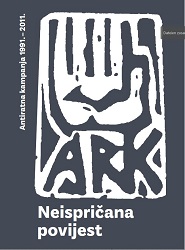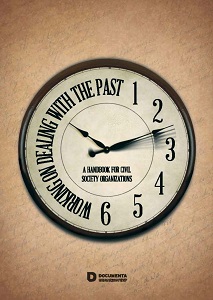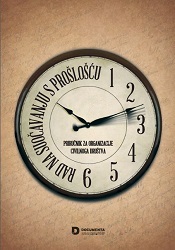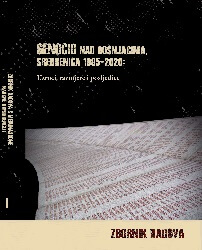Author(s): Milena Ostojić,Boro Kitanoski,Albulena Karaga,Krunoslav Sukić,Milan Colić,Ana Bitoljanu,Goran Božičević / Language(s): Croatian
Publication Year: 0
Pa teško mi je zapravo sjetiti se točno. Nije to bila nekakva... ruptura, ništa se nije specijalno dogodilo pa me obasjalo neko aktvističko sunce. Nekako cijeli život dijelom osjećam da je jako važno participirati u zajednici, prema nekim principima, boriti se za neke vrijednosti... Taj stav je možda nastao i pod utjecajem literature, možda i do... Općenito, ja oduvijek osjećam taj poriv u sebi. Ja sam kao jako mala, još prije nego što sam krenula u školu, voljela čitati. I čitala sam, to je bilo još u 80-im, partizanske priče, “Orlovi rano lete”, Branka Ćopiča i slično. I baš se sjećam da sam odrasla s tim ratom, Nijemcima i partizanima. Taj rat kao da je bio jučer! Evo, ja sam ‘83. godište, negdje ‘87. ili ‘88. već sam mogla čitati, i svi filmovi i knjige koje sam čitala, sve je bilo natopljeno pričama o partizanima i Nijemcima, i tim nekim trulim jabukama, ustašama, četnicima. Sjećam se jednog razgovora sa tatom, moj tata je umro ‘91., znači baš negdje pred rat, ali ja se baš živo sjećam jednog razgovora s njim, to tako valjda ide, kad kao mali izgubiš roditelja pa se onda nekim stvarima kasnije vračaš... Onako, ja sam pitala “A tata, ko’ je pobijedio u ovom zadnjem ratu?”. Mislila sam na Drugi svjetski rat i naravno znala sam ko je pobijedio ali to je bio uvod u daljnje pitanje koje je slijedilo. To su bila neka moja autentična razmišljanja. On je rekao: “Mi smo sine pobijedili.”. “Sine”, znaš kako kćeri zovu tamo odakle ja dolazim! (smijeh). Ja kažem: “A dobro, a što kad recimo u Njemačkoj kći pita svog oca tko je pobijedio u tom zadnjem ratu? Što joj on kaže?”. Strašno me zanimalo rastu li sva djeca kao ja, s tim nekim minulim ratom u kojem smo Mi pobijedili, je li to zapravo bajka koju nam svima roditelji pričaju dok smo mali, nešto kao Djed Mraz (pa stoga i ne sasvim vjerodostojna), je li povlastica djetinjstva sve djece, i u Japanu, Njemačkoj, Južnoafričkoj republici, da odrastaju s pričama o partizanima, o našoj borbi i pobjedi... Prvenstveno mislim da je suočavanje s prošlošću važno toliko koliko se suprotstavlja upravo toj dnevnoj politici, tim dnevnopolitčkim modama, kako se treba misliti i govoriti, nužno ideologiziranim, iza kojih uvijek stoje neki interesi, bez obzira na to o kojoj se vlasti radi. Mislim da je ova povijest na kojoj ja radim, usmena povijest, demokratičnija povijest, jer je to povijest ‘odozdo’. Mislim da kad se priče tako postave jedna pored druge, puno se jasnije 'vidi koliko su priče zapravo slične na raznim stranama. Ljudi na taj način mogu lakše prepoznati sličnosti koje imaju s onima koji se nalaze, ili su se nalazili ‘na suprotnoj strani’. Možda i više nego s nekim tko pripada ‘njihovoj strani’! I to bez obzira na nacionalne i nacionalističke elite koje ih zapravo cijelo 'vrijeme uvjeravaju da je neprijatelj onaj preko plota ili na puškometu. Voljela bih kad bi to prepoznavanje potaknulo izvjesnu horizontalnu solidarnost među prevarenim i opljačkanim narodima, a dezavuiralo nacionalističke narative koje su iz vlastitih interesa plasirali, i dalje plasiraju, jedini dobitnici ovih ratova, te več pomenute nacionalne elite.
More...




